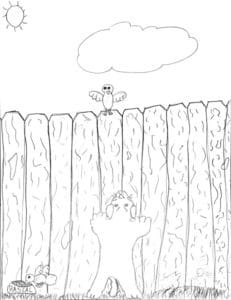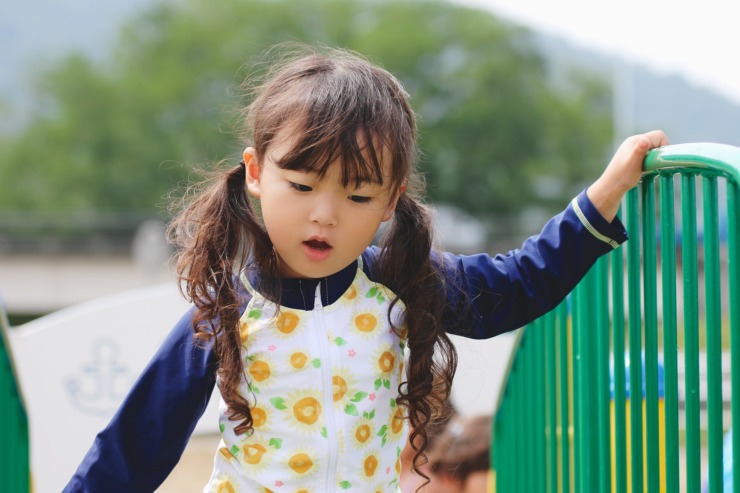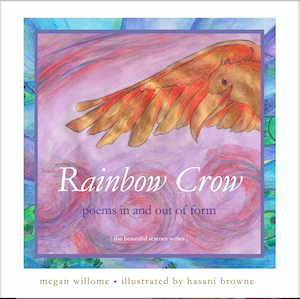Rescuing a Story: Rascal, Poor Dog
Rascal, the dog in my ghazal titled “Dear Rascal,” from my book of children’s poetry, Rainbow Crow, is as real to me as any dog I’ve ever owned. He has been part of a picture book, a middle-grade story, and a YA novel — all unpublished and, I’m sad to say, deservedly so. Even my kids knew about this poor dog I’d made up.
I loved Rascal, but I didn’t know what to do with him, story-wise. I suspect he was growing tired of me as well. And then I read Tania Runyan’s How to Write a Form Poem and realized I could rescue that poor dog through poetry. It seemed what Rascal needed was a ghazal.
Dear Rascal
In August, crows transgress. Poor dog.
Use doggie chow for a round of chess. Poor dog.
They imitate the neighbor, the neighbor’s pet.
Who’s next? It’s anybody’s guess. Poor dog.
They heckle the wrens, harass squirrels from a nest,
hector small children. But I digress. Poor dog.
The gods send us crows as a form of address—
don’t judge. Your puppy chow could be next. Poor dog.
Dear Rascal. Leave the crows alone. It’s for the best.
From your fruitless corvid hunt, rest. Poor dog.
Go chase a chicken instead!
Of this ancient Arabic form of verse, Runyan writes that it is “helpful for emphasizing longing or for exploring metaphysical questions.”

Drawing by my daughter of Rascal more than ten years ago
Questions like, Why crows? Why do these bad birds exist? And whatever can be done about them? For some conundrums, story fails; there is only poetry.
Once I decided to turn Rascal’s adventures into a form poem with specific rules, it came together quickly. I could string together Rascal’s crow encounters, as Runyan says, like “jewels on a necklace.” Each couplet is its own story, and yet they are linked by the melancholy tone of the dog whose enemy remains just out of reach. “Poor dog,” indeed.
The poem’s last line is very un-ghazal-like. It’s an homage to one of my stories that had crows and chickens as next-door neighbors, with Rascal trapped in between. Like Hank the Cowdog, Rascal loves him some chicken dinner. But the crows distracted him with their tricks, thus granting the chickens long, happy lives. In this poem, the chickens range free — like awkward gazelles — while Rascal waits and plots, sure that this time he is smarter any old bird.
Try It: Rescuing a Story
Do you have a story you’ve tried to tell that just wouldn’t gel? Try rescuing your story by putting it in a ghazal. (Ghazal instructions, here.) Or maybe a villanelle!
Photo by MIKI Yoshihito, Creative Commons, via Flickr. Post by Megan Willome.
Browse more children’s poetry
“Megan Willome has captured the essence of crow in this delightful children’s collection. Not only do the poems introduce the reader to the unusual habits and nature of this bird, but also different forms of poetry as well.”
—Michelle Ortega, poet and children’s speech pathologist
- Perspective: The Two, The Only: Calvin and Hobbes - December 16, 2022
- Children’s Book Club: A Very Haunted Christmas - December 9, 2022
- By Heart: ‘The night is darkening round me’ by Emily Brontë - December 2, 2022



Will Willingham says
Megan, I love this story so much. Being able to take something that you love and rescue it in this way. And to have Rascal be with you in your creative process for so long!
Thank you for finding a way to share him with us through this beautiful book.
Megan Willome says
Thanks, Will!
I think I have a name for my next dog, whenever that day comes. Polo and Clover are hanging in there–exploring all the different locations and positions in which to sleep, both inside and outside.